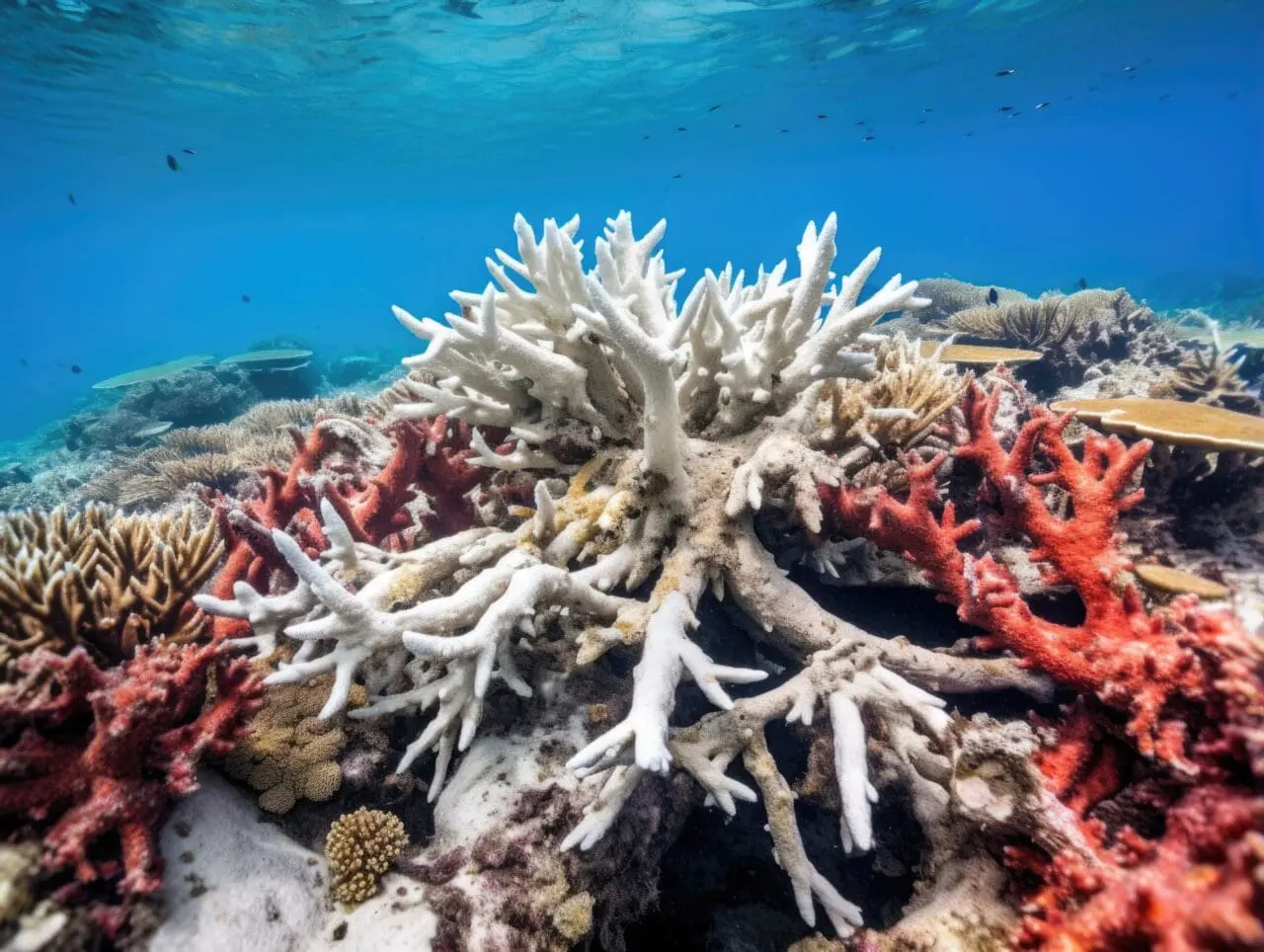

Coral reefs are often referred to as the “rainforests of the sea” due to their incredible biodiversity and vital role in supporting marine life. They cover less than 1% of the ocean floor, yet they are home to over 25% of all marine species. Reefs also protect coastlines from erosion and provide crucial resources for local communities. However, these important ecosystems are under threat due to a combination of human activities and natural factors, such as climate change.
Climate change is one of the biggest threats facing coral reefs today. As ocean temperatures rise, corals become stressed and expel the colorful algae that give them their vibrant hues. This process, known as bleaching, leaves corals vulnerable to disease and death. In addition, increased levels of carbon dioxide in the atmosphere are causing ocean acidification, which makes it difficult for corals to build their calcium carbonate skeletons.
With many of the world’s coral reefs in danger, one startup has developed a system to restore reefs at scale using AI technology. By utilizing specially designed robots trained with artificial intelligence, this innovative approach aims to help corals survive and thrive in challenging conditions. These coral bots are equipped with the latest technology and can accurately identify and target areas that require restoration.
The coral bot system works by first mapping out damaged areas of coral reefs using advanced imaging technology. The robots then use their AI algorithms to identify and remove harmful algae and debris, making it easier for corals to grow and thrive. They can also plant new coral fragments and monitor the health of existing corals to ensure their successful restoration. This process significantly reduces the time and effort required for traditional reef restoration methods.
The use of AI technology in coral reef restoration has numerous benefits, including increased efficiency, accuracy, and cost-effectiveness. With the ability to map out and target specific areas for restoration, coral bots can maximize their impact and help restore damaged reefs faster. This approach also reduces the risk of human error and minimizes the disturbance to already fragile ecosystems.
While the coral bot technology shows great promise, there are still challenges that need to be addressed. One of the main challenges is ensuring that the robots do not damage or disturb other marine life while carrying out their tasks. To overcome this, the team has implemented strict protocols and continuously monitors and adjusts their techniques to minimize any potential harm.
Restored coral reefs not only benefit corals but also have a significant impact on the surrounding marine life. Healthy reefs provide food, shelter, and breeding grounds for countless species of fish, crustaceans, and other creatures. These vibrant ecosystems are essential for maintaining healthy ocean ecosystems and supporting sustainable fisheries.
The potential for coral bots and AI technology to restore damaged coral reefs is immense. As the technology continues to evolve, we may see advancements in their abilities to monitor and adapt to changing environments. This could lead to even more effective and efficient restoration methods that will ultimately benefit our oceans and planet.
In conclusion, the use of AI technology for coral reef restoration is an exciting development in the field of marine conservation. By combining innovative technology with the expertise of dedicated scientists and marine conservationists, we have a promising solution to help restore damaged coral reefs and protect our oceans for future generations. However, it is also essential that we continue to address the root causes of coral reef decline, such as climate change, to ensure a sustainable future for these vital ecosystems
This website uses cookies to improve your experience. Choose what you're happy with.
Required for the site to function and can't be switched off.
Help us improve the website. Turn on if you agree.
Used for ads and personalisation. Turn on if you agree.
This website uses cookies to improve your experience. Choose what you're happy with.
Required for the site to function and can't be switched off.
Help us improve the website. Turn on if you agree.
Used for ads and personalisation. Turn on if you agree.